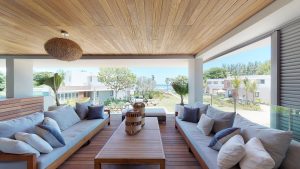Share this article
Be the first to know about our new projects.
2Futures has many new luxury projects in the pipeline. Get notified before the public when there’s a new launch. Benefit from early bird specials.
Mauritius and Malta appear to have similar characteristics that may leave curious foreign investors wondering if investing a property in Mauritius is better than in Malta. True, both are island nations: Mauritius is on the Indian Ocean and Malta is on the Mediterranean Sea. But the similarity ends here.
In terms of size, the larger of the two countries would be Mauritius, with approximately 2,040 square kilometres in land area. This is six times larger than Malta’s area of about 316 square kilometres.
With this difference in territorial size, the domestic market base of Mauritius naturally comes out proportionately bigger with its estimated population of 1.3 million. Malta, on the other hand, has a local market base of about 400,000, which is smaller than that of Mauritius by approximately 30 per cent.
Mauritius and Malta both have a multicultural character, with foreigners accounting for a significant slice of their population. By the sheer size of its territory and current population mix, Mauritius appears in a better position to accommodate more non-citizens to its fold.
As of 2019, it was estimated that 42,000 foreigners are working and living in Mauritius, representing just about 3 per cent of the country’s population. Malta, on the other hand, already hosts 70,000 foreigners who now account for 14 per cent of its population.
Both Mauritius and Malta have set incentives to attract foreign investors as well as mechanisms to encourage foreign talents to boost their workforce. The earnings of those who chose to live and work or engage in business in Mauritius stand to go a long way, as the cost of living in the country is markedly lower than in Malta.
Overall, consumer prices in Malta are nearly 30 per cent higher than in Mauritius. Rental rates in Malta are 166.45 per cent higher than in Mauritius. Prices in Maltese restaurants are estimated to be 83.3 per cent higher than those in Mauritius.
Malta has imposed many restrictions on property ownership by foreigners in the country. EU citizens and foreign nationals can usually buy only one property in Malta, and typically, these are for owner-occupancy only.
Properties that foreigners own can be rented out only if valued at over EUR233,000, with a swimming pool, and with registration at the Hotel and Catering Establishments Board. Only short-term lease agreements are allowed for foreign-owned properties in Malta.
In contrast, Mauritius property investment guidelines are more liberal and offer several schemes enabling foreigners to own a property in the country. One of these programmes allows foreigners to buy an apartment in Mauritius provided it is located within a condominium development with two floors above ground (G +2) level.
Purchases are subject to the approval of the Mauritian Economic Development Board. The purchase amount must not be less than MUR6 million (about USD155,000). Foreigners, with or without occupation permit, residence permit or permanent residence permit, can purchase the G+2 apartments priced higher.
The foreign homeowners of these apartments can rent out them out. Notably, Mauritius’s dynamic tourism sector has been providing strength to the country’s rental market. In prime developments, the gross rental yields of Mauritius properties are in the 3.5‒4 per cent range.

Aside from its G+2 programme, Mauritius has adopted the Property Development Scheme (PDS) to attract investors from overseas. PDS built residences are available to citizens, foreigners and Mauritian diaspora.
The Mauritian developments, moreover, are relatively newer and are bundled with plenty of amenities, such as swimming pools, clubhouses, sports and wellness facilities.
The residents are provided with daily management services, including security, maintenance, and household services. Many PDS projects also incorporate commercial spaces and social areas helping promote interaction within the community.
All told, a under PDS is a luxury choice that can match a market offering in the high-end communities of Malta.
Drivers of growth: Mauritius property investment schemes
Mauritius property investment remains solid despite COVID-19